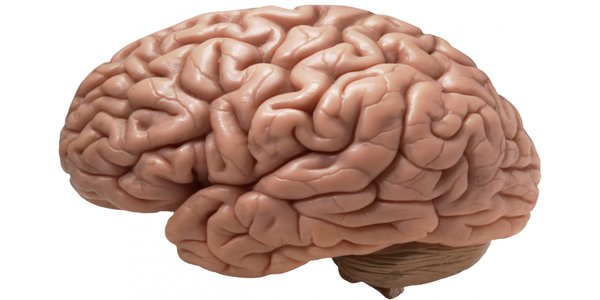Don't Want Your Brain To Shrink? Then Don't Be Apathetic

The human brain is a strange thing. As we grow up, we start learning more and more and building our brain cells up to be as efficient and numerous as possible, but once we hit a certain point, we actually start losing many of those same brain cells. Its a constant cycle, and apparently, it may explain why some seniors start getting apathetic: their brain's total volume is shrinking.
According to Headline & Global News, elderly people who are more apathetic tend to have smaller brains than their peers who aren't. The National Institute on Aging at the National Institutes of Health in Bethesda, MA issued the study. The researchers looked specifically at individuals who had apathy but did not also suffer from depression. It is very common for apathy and depression to be linked but not always.
Apathy can best be described as a general disinterest in activities, lack of energy and often being less socially active than normal. It's kind of like having things to do but having absolutely no desire to do any of them. The scientists ran MRIs on 4,354 people, with the average age of the study group being 76. The participants were also given a questionnaire to discuss their emotions, recent habits and social activity. The results found that those who were more apathetic had 1.4% less gray matter volume and 1.6 less white matter than those who had fewer than two symptoms of apathy. Gray matter is the part of your brain that learns things and lets you recall things you remember, while the white matter allows cells to communicate.
One thing that many doctors recommend for older folks and anyone looking to keep their mind sharp is to play games, do puzzles and constantly learn. My mom, who is in her late 50s, swears that her Tetris addiction is really her just working her brain. I suspect that is only half true. New games are being developed all the time with the aim of helping build better brain function. Even young toddlers are benefiting from brain boosting technology. At the very least, playing games can help you feel better and help you cope with difficult life situations. As a gamer, I hope that the benefits of playing starts to be noticed more and used to help people from all walks of life.
As more data comes from this study is used in practice, perhaps more screening can be done at younger ages to help prevent brain loss in seniors or at least help slow the loss of brain matter. It may also give families the opportunity to help their loved ones by keeping them engaged socially. With science and medicine constantly advancing, hopefully this is a problem that the elderly won't have to face in the future.
Your Daily Blend of Entertainment News
